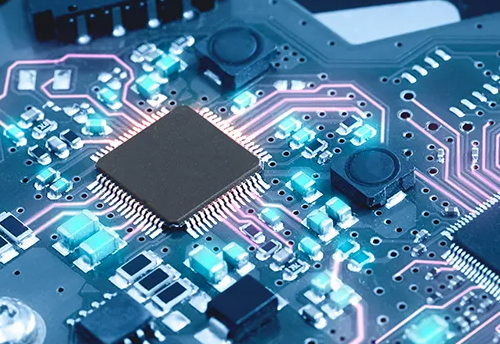Indian frugality beats chip shortage as SMEs buy refurbished devices
Updated: Jan 07, 2022 11:16:23am

Indian frugality beats chip shortage as SMEs buy refurbished devices
New Delhi, 7 Jan (KNN) Startups and small- and medium-sized businesses (SMBs) in India are turning to suppliers of refurbished devices for laptops and smartphones required for their business operations; this indicates the frugal nature of SMEs due to increased demand for chips and global chip shortage hand in hand.
Startups and small- and medium-sized businesses (SMBs) in India are turning to suppliers of refurbished devices for laptops and smartphones required for their business operations as reported by mint.
Delhi-based Cashify has seen demand for laptops grow five-fold in 2021, while demand for smartphones has more than doubled in the last 12 months, especially from smaller companies with 30-40 employees. “In laptops, 65-70% of the demand came from the business side," said Mandeep Manocha, co-founder and chief executive officer of Cashify.
“In the past, all these companies used to buy new smartphones or use device farms of Amazon Web Services (AWS) or other such services. Now they get a refurbished device at 30-40% discount; a very significant portion of our SMB demand is actually coming for smartphones, especially on the testing side," added Manocha.
According to Kolkata-based HyperXchange, the overall refurbished electronics market in India is growing at a compounded annual growth rate (CAGR) of 80%. The growing interest in refurbished laptops and smartphones from small businesses and startups will further drive growth in this segment. For HyperXchange, though, primary customers are still individual buyers. However, the company has seen demand from both corporate and consumer segments grow “at an unprecedented pace".
An increasing number of SMEs and startups have started using refurbished products, especially under leasing and rental programmes, according to Dipanjan Purkayastha, co-founder and chief executive officer of HyperXchange.
He added that about 31% of SMEs and startups among its customers are focused on buying or renting refurbished laptops, while 68% want desktop computers. On the other hand, 88% of the consumer segment was focused on buying mobile phones.
Purkayastha, though, admitted his company is primarily a consumer-focused brand and corporate business accounts for less than 5% of its revenue.
According to Glen Cardoza, senior research analyst at Counterpoint Research, demand can vary from company to company.
“Older companies in the refurbished space are more likely to have tie-ups with bigger companies and have the distribution networks for B2B deals, compared with a newer company. We are seeing more commercial buyers looking for refurbished devices. The refurbished market has good supply as many more people trade in old devices now," he said.
Unlike the new devices market, where the supply of several devices was disrupted due to the global chip shortage, refurbished suppliers were able to procure and supply devices to both individuals and businesses.
Experts also pointed out that the demand for refurbished devices is no longer coming only from metro cities, which shows a change in perception towards the use of refurbished devices for work. Manocha has seen a lot of demand come from cities such as Bhopal, Mangaluru and Indore. His company also ensures that data stored on all the devices are completely wiped using certified erasure tools before they are sold.
Buying preferences for smaller businesses has also worked in favour of refurbished suppliers. Unlike large companies that are also fussy about brands, smaller businesses typically buy products with certain specifications regardless of the brand.
To meet the growing demand for PCs in India, refurbished suppliers like Cashify are planning to step up their procurement efforts for laptops.
“We are now putting resources behind increasing our laptop refurb capability, and moving to a larger refurb centre in the next four to five months," said Manocha.












